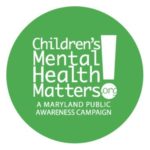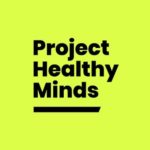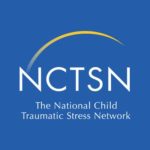Physical & Mental Health
- Depression/Suicide (35)
- Emotional Intelligence (13)
- Health Care Resources for Youth (35)
- Mental Health (82)
- Mindfulness (29)
- Nutrition (52)
- Obesity Prevention (35)
- Resiliency (14)
- Social-Emotional Learning (SEL) (77)
- Trauma-Informed Care (48)
RULER in Out-of-School Time (OST) is an approach to social and emotional learning that is adapted from The Yale Center for Emotional Intelligence’s evidence-based approach known as RULER. RULER in OST strengthens the emotional intelligence skills of staff and young people participating in afterschool programs, camps, clubs, sports, or other spaces outside the school day.
RULER in OST consists of 7 staff development videos plus reflections and activities for each. The series teaches the skills and tools of emotional intelligence and other topics relevant to working with youth.
We understand training staff and implementing new approaches in OST settings can be difficult. Thus, RULER in OST implementation is flexible. Content can be completed independently by staff at their own pace or integrated into staff meetings over time.
Kid Power is an interactive video platform for students in grades Kindergarten through 8th. Kid Power combines philanthropy and fun with mental health, social-emotional learning (SEL), child rights, and equity and access for all students.
Download the Dining Decisions game and see how healthy you can make your food plate!
Kendra, our food expert, will help you make smart food choices to stay powered up. Dining Decisions places you in control of your food plate. Decide which foods give you more energy and powerful muscles and which ones are better to eat only sometimes.
Resources for preventing childhood obesity and for improving care of children who are overweight.
The resources in this toolkit are designed to help primary care practice teams provide coordinated, integrated and multidisciplinary services to both prevent obesity and improve care for children who are already overweight or at risk for becoming overweight. Includes tools for prevention, assessment and diagnosis, management and treatment and community resources.
Information, resources and tips for identifying, understanding and managing children in the classroom affected by trauma.
Increase awareness of the importance of children’s mental health in your school this year! Equip families and children with the resources to support their mental health in your community.
Being a teen is stressful! Whether it’s school, friends, or dating, the teen years are full of difficult changes-both mentally and physically. If you’re like many teens, you may have difficulty dealing with stress in effective ways. You aren’t alone, and there are things you can do to stay calm, no matter how stressful life becomes. All you need to do is stop, breathe, and be mindful and aware in the present moment.
As a parent, caregiver, or other trusted adult, it can be hard to know how to support a youth who is struggling. BC Children’s Kelty Mental Health Resource Centre provides peer support, information, and resources to help you talk to and guide a youth in your life to the services and supports they may need.
We’re a collective of socially-minded creatives, entrepreneurs, musicians, inventors, engineers, doctors, researchers, business leaders, policy wonks, and every-day problem solvers dedicated to building a more supportive world. Mental health can feel like a maze. We’re here to help you navigate.
Find mental health resources based on how you’re feeling or what you’re going through.
Children with childhood traumatic grief often try to avoid talking about the deceased person or their feelings about the death, but talking about it may be important for resolving trauma symptoms that are interfering with the child’s ability to grieve. If symptoms similar to those listed on this sheet persist, professional help may be needed. The professional should have experience in working with children and adolescents and specifically with issues of grief and trauma.
This resource highlights seven key challenges to providing school- or program-based mental health support across early childhood, K–12 schools, and higher education settings, and presents seven corresponding recommendations.
This tip sheet targets Victim Service Providers (VSPs), Mental Health professionals (MHPs), emergency management planners, and others who serve victims impacted by an MVI. It contains information to prepare communities to address the mental health needs of victims and family members, as well as improve trauma- and grief related symptoms in the immediate aftermath and throughout the recovery process.










